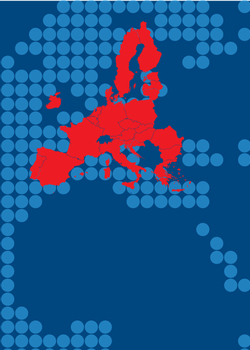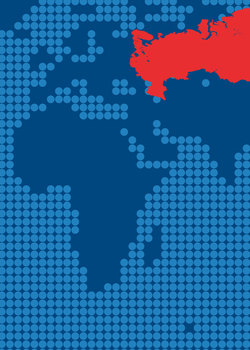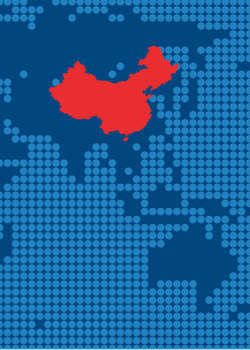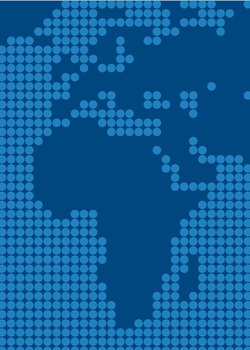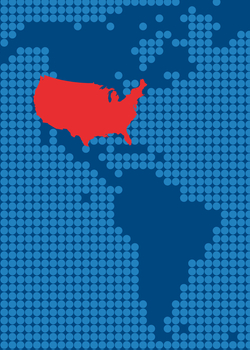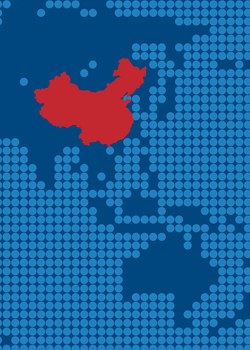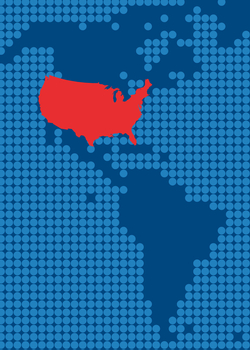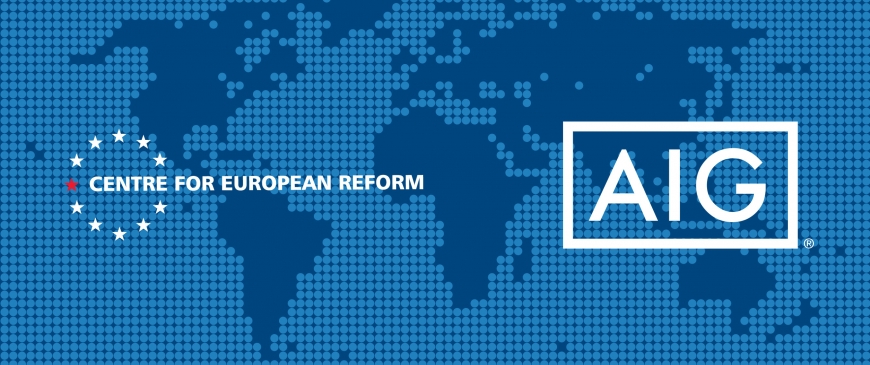
CER/AIG Geopolitical Risk Series
The Centre for European Reform and AIG's seminar series on geopolitical risk invites key politicians, policy-makers and representatives of business to converse in an informal atmosphere. Discussions focus on Europe's global role and its ability to act strategically in its external relations, political and economic. Please see all events in the series listed below, including our forthcoming dates.
CER/AIG Geopolitical Risk Series: Webinar on 'What the US election result means for transatlantic relations'
With Heather Conley, Senior Adviser at The German Marshall Fund of the United States, Christian Jetzlsperger, Head of Division for United States, Canada, G7 Foreign Ministers' Track at the German Federal Foreign Office, Anna Kantrup, Senior Manager, External Economic Policy, at the Federation of German Industries (BDI), and Laura von Daniels, Head of Research Division, The Americas, at the German Institute for International and Security Affairs (SWP).
The result of the US election on November 5th will shape transatlantic relations, European politics and European security for the next five years. A victory by Kamala Harris promises continuity with the policies of the Biden administration on trade and security. Conversely, a Donald Trump victory is likely to usher in a new era of protectionism, sharpening transatlantic trade tensions. Trump may also reduce America’s support for Ukraine and its commitment to NATO – plunging Europe into a major security crisis.
This webinar will assess the implication of the US results for the transatlantic relationship, European politics and European security. We will look at questions such as: How will the new administration approach the war in Ukraine and relations with China? How will the impact of the election shape European politics? How can Europe and the US continue to work together on shared challenges? And how should Europeans respond to US policies that undermine their own interests?
CER/AIG Geopolitical Risk Series: Webinar on 'What the European Parliament elections mean for Europe'
With Rosa Balfour, Director of Carnegie Europe, Katharina Braig, Head of the European Parliament Unit at the German Federal Foreign Office, Raphael Bossong, Deputy Head of the EU/Europe Research Division at the German Institute for International and Security Affairs (SWP), and Joscha Ritz, Deputy Director of the BDI/BDA The German Business Representation's Brussels office.
The results of the European Parliament elections this June will be a barometer of public opinion across the EU. The elections will also influence the makeup of the next European Commission and shape the EU's policies on a range of issues, from the economy, climate, energy and trade to foreign policy, migration and defence. In this webinar we will assess the election results and focus on their implications. We will focus on questions such as: what do the results mean for the 'grand coalition' of centrist forces that has so far dominated the European Parliament? How will the composition of the European Parliament shape EU policies over the next four years? Will right-wing forces form a coherent grouping and how much influence will they be able to exert? Will the new European Parliament influence EU policies towards actors such as Russia, China and the US?
CER/AIG Geopolitical Risk Series: Webinar on 'What will Putin do next?'
With Maria Domańska, Senior Fellow in the Russian Department at the Centre for Eastern Studies (OSW), Matthias Krämer, Head of the External Economic Policy Department at the Federation of German Industries (BDI) and Belarus at the German Federal Foreign Office, Alexander Graf Lambsdorff, Ambassador of Germany to Russia, and Kadri Liik, Senior Policy Fellow at the European Council on Foreign Relations.
With presidential elections in Russia taking place from 15-17 March, Vladimir Putin is likely to be in office for at least another six years. His 2018-2024 term was characterised by growing confrontation with the West, culminating in Russia's invasion of Ukraine. Should the West expect the militarisation of Russian society and the Russian economy to continue, posing a threat to more of Russia's neighbours? Or will the human and financial costs of the war in Ukraine force Putin to pursue detente with the West, at least until Russia has regained its strength? How should Western policy-makers deal with Putin in his next term?
CER/AIG Geopolitical Risk Series: Webinar on 'Cross-straits relations after the Taiwan election'
With Stefan Gätzner, Chief Representative Greater China at the Federation of German Industries (BDI), Martin Thümmel, Director for East Asia, Southeast Asia and the Pacific at the German Federal Foreign Office, and Abigaël Vasselier, Director Policy and European Affairs/Head of Programme Foreign Relations at the Mercator Institute for China Studies (MERICS).
Our aim in this webinar was to assess the likely course of relations between Taiwan and the mainland following the Taiwanese elections. What will the new Taiwanese president do? What will Xi Jinping do? And what if anything can the EU and the West do to try to reduce cross-straits tension, or to mitigate its effects on global security and the global economy?
CER/AIG Geopolitical Risk Series: Webinar on 'Europe in the era of great power competition'
With Daniel Gros, Director of the Institute for European Policy-Making at Bocconi University, Nikolas Keßels, Deputy Head of the Department for External Economic Policy at the Federation of German Industries (BDI), Michael Scharfschwerdt, Director Policy Planning at the German Federal Foreign Office, and Leslie Vinjamuri, Director of the US and the Americas Programme at Chatham House and Dean of the Queen Elizabeth II Academy for Leadership in International Affairs.
Global politics has entered a new era of great power competition as the world of peaceful co-existence, open markets and free trade disappears in the rearview mirror. Europe is confronted by a geopolitical and economic environment which is arguably more challenging than at any time since 1945. This webinar will take stock of how effectively Europe is responding to those challenges so far and what lies ahead. How are economic decoupling and the securitisation of trade and investment flows affecting Europe's relationships with the US and China? Has Europe yet faced up to a future in which it might need to defend itself against an expansionist Russia without American help? Are Europe's efforts to preserve an open multilateral system realistic? Is Europe well positioned to deal with countries that don’t want to clearly align with the US or the authoritarian powers?
CER/AIG Geopolitical Risk Series: Webinar on 'A partnership reborn? The future of the transatlantic relationship'
With Anthony Gardner, Senior Advisor for Brunswick Group LLP, Christian Jetzlsperger, Head of Division for United States, Canada, G7 Foreign Ministers' Track at the German Federal Foreign Office, and Ivana Zuzul, Senior Director for Europe at the US Chamber of Commerce.
Transatlantic relations have been revitalised under Joe Biden's presidency. Europe and the US have worked closely together to support Ukraine in resisting Russia's invasion. The US has become warmer towards EU defence initiatives and some trade tensions, like those over steel, have cooled. Yet there has also been substantial transatlantic friction, especially over Biden's green subsidies in the Inflation Reduction Act and over its 'buy American' policies more broadly. Europe's approach towards China has toughened, converging with Washington's, but substantial differences persist over how the EU and the US approach China. Meanwhile, the Republican Party shows little sign of abandoning the America First policies favoured by Donald Trump. How will the growing US emphasis on Asia affect relations with the EU? Will US and European approaches towards China converge or will they grow further apart? Can Europe and America overcome their differences and consolidate their partnership?
CER/AIG Geopolitical Risk Series: Webinar on 'Xi Jinping's China: What next?'
With Jörn Beißert, Head of Division for Bilateral and EU Relations with China at the German Federal Foreign Office, Bonny Lin, Director of the China Power Project and Senior Fellow for Asian Security at the Center for Strategic and International Studies, Kristin Shi-Kupfer, Chair of Contemporary China Studies at Trier University and Senior Associate Fellow at the Mercator Institute for China Studies (MERICS), and Friedolin Strack, Head of the International Markets Department at the Federation of German Industries (BDI).
The National People's Congress (NPC - the Chinese parliament) held its annual session in March. It elected Xi Jinping to his third five-year term as president of China. After the 20th Congress of the Chinese Communist Party in 2022, which gave Xi a third term of office as General Secretary of the Party (a more significant post than president, in China's party-state), Xi now has a hand-picked prime minister and a government of loyal supporters. He has set a course for the next five years. After a few difficult months, in which the mishandling of the zero COVID policy led to public protests, and the end of the policy led to mass infections and large numbers of deaths, has Xi now stabilised the Chinese ship of state? Does he have a sensible plan to get the economy back on course? What are the implications for the rest of the world if Xi succeeds, or if he fails? And how much should Europe and the US worry about Xi's close relationship with Vladimir Putin?
CER/AIG Geopolitical Risk Series: Webinar on 'What will Putin do next, and how should the West respond?'
With Per Brodersen, Director of the German Agribusiness Alliance, part of the German Eastern Business Association (OA), Sergey Radchenko, Wilson E Schmidt Distinguished Professor at the Johns Hopkins School of Advanced International Studies, Thilo Schroeter, Desk Officer for Russia, Belarus and the Eastern Partnership at the German Federal Foreign Office, and Angela Stent, Director at the Center for Eurasian, Russian and East European Studies, Georgetown University.
A year ago, Putin surprised many in the West and even in Russia by launching a full-scale invasion of Ukraine. After initially making significant territorial gains, Russia lost ground in the north and the south. It is now bogged down in a bloody war of attrition. In March 2024 at the latest, Russia must hold presidential elections. Will Putin run again, extending his time in office till 2030? If he does, what will he do in the next year to ensure electoral success? Will he throw more resources at achieving military victory in Ukraine? Will he concentrate on repressing domestic opposition, to eliminate any criticism of the war? Will he seek more confrontation with the West, in an effort to get Russians to rally to the flag? Or will he look for a way out of the war, before it does even more damage to Russia's economy and society? And what should the West do? Should it seek to raise the cost of continuing the war, with military support to Ukraine and economic sanctions against Russia? Or should it accept that Putin will be in power for at least another seven years, and accommodate itself to the new reality in the region?
CER/AIG Geopolitical Risk Series: Webinar on 'The US midterm elections'
With Laura von Daniels, Head, The Americas Research Division, German Institute for International and Security Affairs (SWP), Tim Prange, Deputy Head, Division for the United States, Canada and the G7 Foreign Ministers' Track, German Federal Foreign Office, Christoph Schemionek, President and Chief Executive Officer, Delegation of German Industry and Commerce in Washington, DC, and Leslie Vinjamuri, Director, US and the Americas Programme, Chatham House.
This event reviewed and interpreted the results of the 2022 midterm elections and their implications for the transatlantic relationship. Which factors drove the outcome? What do the elections tell us about the state of both parties? What should we expect from President Biden in the second half of his term, particularly with regards to US involvement in the Ukraine war, and US-European co-operation on trade and technology? How can European political leaders and businesses prepare for the next few years in transatlantic relations? And does Europe have a sustainable strategy vis-a-vis the United States?
CER/AIG Geopolitical Risk Series: Webinar on 'China's 20th Party Congress'
With Jörn Beißert, Head of Division AP01 (China), Federal Foreign Office, Berlin, and Stefan Gätzner, Chief Representative Greater China, Federation of German Industries (BDI).
At its 20th Party Congress, the Chinese Communist Party is expected to re-elect Xi Jinping as General Secretary for another 5 years, cementing his power. As Xi heads into his third term, China's relationship with Europe is strained to an unprecedented degree, after mutual sanctions, Chinese behaviour in the Covid pandemic and Beijing's support for Russia in the Ukraine war. European political leaders and businesses are faced with the pressure to reduce dependencies on China. What are Xi's domestic and international priorities? What should we expect from Chinese leadership over the next five years? How will decisions taken in Beijing this year impact Europe's economy, as well as its security? And how should the EU adapt its China strategy?


